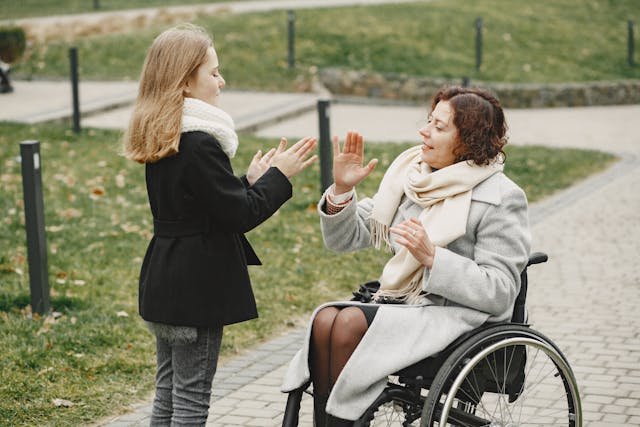Movies and TV shows have a powerful influence on how society views disabilities and prosthetic users. Whether intentional or not, the way characters with disabilities are portrayed affects how audiences think, feel, and interact with real-life individuals who use prosthetic limbs. When done right, media can break down barriers, challenge stereotypes, and inspire positive change. But when done poorly, it can reinforce harmful misconceptions and limit opportunities for disabled individuals.
This article explores how entertainment shapes public perception of disabilities and prosthetics, the common mistakes filmmakers make, and why accurate and authentic representation is necessary for building an inclusive society.
The Power of Media in Shaping Public Attitudes
For many people, their first and sometimes only exposure to disabilities and prosthetic limbs comes from what they see on screen. Since disabilities and prosthetic users make up a small percentage of the population, most individuals rely on media to shape their understanding of these experiences.
Movies and TV Influence What People Believe About Disabilities
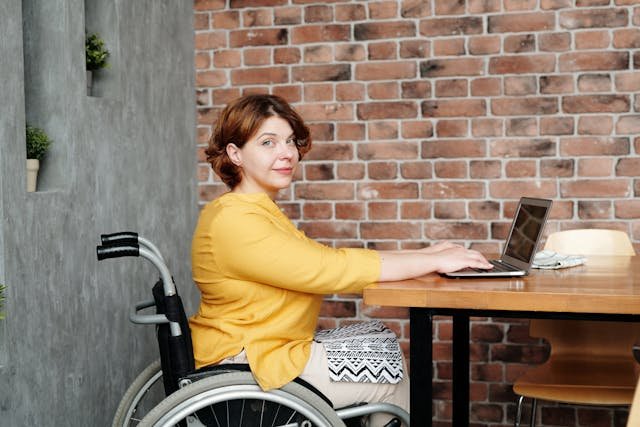
If a movie shows a character struggling to live a full life because of their disability, viewers may assume that all disabled people face constant hardship and limitations. On the other hand, if prosthetic users are only portrayed as inspirational figures who “overcome” their disability, it can create unrealistic expectations about what life with a prosthetic limb is actually like.
These portrayals affect how society treats people with disabilities. They can influence everything from employment opportunities and social interactions to government policies and accessibility laws. This is why it’s so important for movies and TV shows to present accurate, nuanced, and diverse portrayals of disabled individuals.
The Fine Line Between Awareness and Exploitation
There is a difference between raising awareness about disabilities and exploiting them for dramatic effect. Too often, films use disability as a plot device rather than exploring the character as a fully developed human being.
Some films treat prosthetic limbs and disabilities as a source of pity, while others use them to create an inspirational storyline for non-disabled audiences. This approach can lead to a narrow and incomplete understanding of the real challenges, triumphs, and everyday lives of disabled individuals.
When media focuses solely on struggle or overcoming, it ignores the fact that many people with prosthetic limbs live ordinary, fulfilling, and independent lives. While challenges exist, they do not define a person’s entire existence. Balanced and realistic portrayals are necessary to show the full scope of life with a disability.
Representation Affects Disabled Individuals’ Self-Perception
The way prosthetic users are portrayed on screen doesn’t just impact how society sees them—it also affects how they see themselves.
For a child with a prosthetic limb, seeing a character like them in a positive and powerful role can be life-changing. It reassures them that they belong, that they can be heroes, athletes, doctors, or scientists, and that their disability does not define them.
However, if most media shows disabled people as helpless, broken, or in need of fixing, it can create feelings of low self-worth and exclusion. Positive representation in media helps build confidence, encourages ambition, and fosters a sense of belonging.
Common Stereotypes in Movies and TV Shows
One of the most common portrayals of disability in media is the “tragic figure”—a character whose life is defined by suffering, loneliness, or regret due to their disability. This trope suggests that a person with a prosthetic limb or physical disability can never truly be happy, reinforcing the idea that disability is something to be feared or pitied.
The “Tragic Figure” Narrative

In reality, millions of people with prosthetic limbs lead happy, successful lives, engage in relationships, and contribute to society in countless ways. While challenges exist, they do not consume or ruin a person’s life as often depicted in films.
Movies and TV shows must move away from one-dimensional stories of loss and tragedy and instead showcase well-rounded disabled characters with complex emotions, ambitions, and personalities.
The “Superhuman Overcomer” Trope
The opposite of the tragic figure is the superhuman overcomer—a character who is portrayed as extraordinary simply for existing with a disability. These characters are often shown as inspirational figures who prove their worth by achieving something remarkable despite their disability.
While there are many real-life disabled athletes, inventors, and leaders who accomplish great things, not every disabled person’s life is a heroic battle. This stereotype places unrealistic expectations on disabled individuals, making them feel like they must achieve something extraordinary just to be accepted or respected.
Realistic portrayals should show disabled characters living normal lives, with ordinary aspirations, friendships, and struggles—just like everyone else.
The “Magical Cure” Trope
Another damaging portrayal is the magical cure trope, where a disabled character either miraculously regains their lost limb or disability vanishes through a medical breakthrough. This reinforces the harmful belief that disability is something that must be “fixed” for a person to find happiness.
In reality, many prosthetic users do not see their disability as something that needs to be cured. They adapt, innovate, and lead fulfilling lives without needing to be “healed”. Movies and TV should focus more on acceptance, empowerment, and inclusion, rather than promoting the idea that disability must be erased.
The Shift Towards Positive Representation
In recent years, some films and TV shows have made efforts to depict prosthetic users and disabled individuals more accurately.
Movies That Are Getting It Right
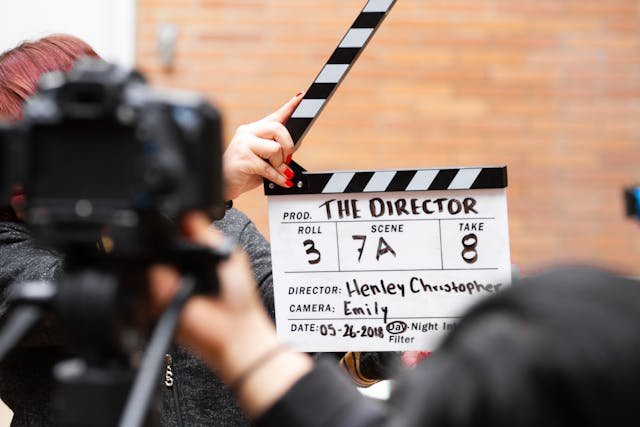
Movies like The Peanut Butter Falcon and CODA cast actors with real disabilities, bringing authentic experiences to their roles. TV shows like Breaking Bad featured an actor with cerebral palsy playing a character with the same condition, helping to create a realistic and relatable portrayal.
By hiring disabled actors and consulting real-life prosthetic users, these productions ensure that disability representation is handled with care and accuracy.
The Role of Disabled Actors in Representation
One of the best ways to ensure accurate portrayals is to cast disabled actors in disabled roles. Too often, non-disabled actors are hired to pretend to be disabled, leading to performances that lack depth and authenticity.
Disabled actors bring real-life experience, body language, and emotional understanding to a role that no amount of research can replicate. When given the opportunity, they create genuine, powerful, and realistic performances that resonate with audiences.
Hollywood must commit to inclusive casting practices, ensuring that disabled actors have the same opportunities as their non-disabled counterparts.
Encouraging Realistic Storytelling
To create better representation, filmmakers and writers must:
- Consult disabled individuals when creating characters and scripts.
- Avoid stereotypes that either pity or glorify disability.
- Show prosthetic users in a wide range of roles beyond just medical dramas or inspirational stories.
- Cast disabled actors to bring authenticity to their roles.
By making these changes, movies and TV can help educate society, break down prejudices, and promote true inclusion.
The Role of Filmmakers and Writers in Changing the Narrative
One of the best ways to ensure accurate and respectful representation of prosthetic users in media is to involve real people with disabilities in the creative process. This means that writers, directors, and producers must actively consult with:
Consulting Real Prosthetic Users and Disability Advocates
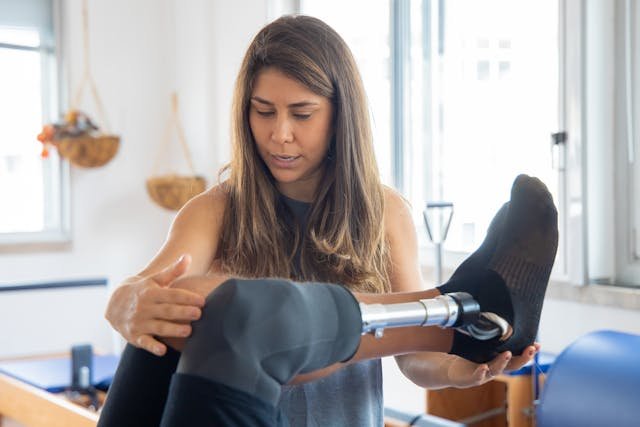
- Prosthetic users who can provide firsthand insight into their experiences.
- Disability advocates who can ensure that portrayals avoid common stereotypes.
- Medical professionals and prosthetists who understand the science and technology behind modern prosthetic limbs.
By incorporating real experiences, movies and TV shows can move beyond outdated and inaccurate portrayals and instead deliver stories that resonate with the disabled community.
For example, the movie The Peanut Butter Falcon was praised for its authentic representation of a character with Down syndrome, largely because the filmmakers consulted and collaborated with disability advocates throughout production. This should be the industry standard when depicting disability on screen.
Expanding Storylines Beyond Disability
Another key step in improving representation is to create disabled characters whose storylines do not revolve solely around their disability.
Too often, when a character has a prosthetic limb, their entire personality and storyline are centered around overcoming their disability. This leads to one-dimensional storytelling that fails to reflect the real, everyday experiences of disabled individuals.
Instead of focusing only on disability, filmmakers should:
- Give prosthetic users diverse and complex roles in romance, action, comedy, and drama.
- Show them as professionals, friends, family members, and leaders, rather than just as individuals “struggling” with their condition.
- Normalize prosthetic limbs by making them a natural part of a character’s life, rather than the main plot point.
For example, in Mad Max: Fury Road, the character Furiosa, played by Charlize Theron, has a prosthetic arm. However, the movie never makes a big deal about it—she is portrayed as a powerful and capable warrior whose disability is just one part of who she is. This approach normalizes disability rather than making it the sole focus of a character’s identity.
Hiring More Disabled Professionals in the Film Industry
Beyond casting disabled actors, there is also a need for more disabled professionals behind the scenes. Writers, directors, and producers with disabilities bring unique perspectives that help ensure more accurate and nuanced storytelling.
The inclusion of disabled voices in scriptwriting, directing, and production can:
- Ensure that disabled characters are written with depth and authenticity.
- Help create stories that challenge outdated stereotypes.
- Push for more inclusive hiring and casting policies in Hollywood.
The more disabled creatives are involved in the industry, the better and more diverse disability representation will become.
The Impact of Positive Representation on Society
Media plays a critical role in shaping how society views people with prosthetic limbs. When films and TV shows portray prosthetic users as capable, independent, and diverse individuals, it challenges misconceptions and encourages acceptance.
Changing Public Attitudes Toward Prosthetic Users
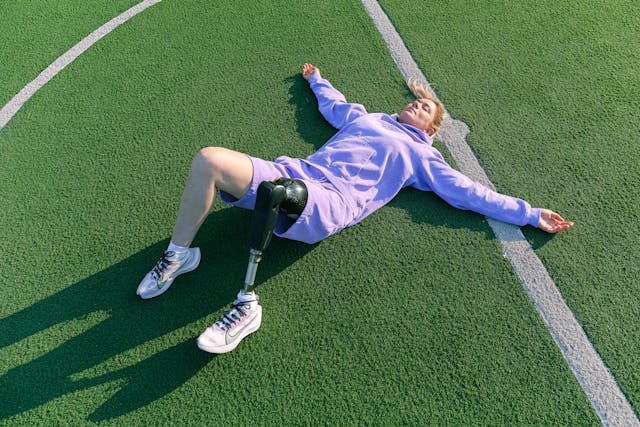
Realistic and positive representation can lead to:
- Greater social inclusion for prosthetic users.
- More accessibility in public spaces, workplaces, and schools.
- A shift in how people interact with and support the disabled community.
For example, movies like Black Panther introduced audiences to characters with prosthetic technology in a way that was futuristic and empowering, helping to redefine how prosthetic limbs are viewed. Instead of being seen as a limitation, they were portrayed as a source of strength and innovation.
Inspiring Future Generations
When children with disabilities see strong, empowered characters with prosthetic limbs on screen, it sends a powerful message: they are not alone, and they can achieve anything.
Seeing a hero, a scientist, or an athlete with a prosthetic limb can:
- Boost confidence and self-esteem in young prosthetic users.
- Encourage more children with disabilities to pursue their dreams.
- Help non-disabled children see disability as normal, rather than something “different” or “tragic.”
Movies and TV shows have the ability to influence how the next generation perceives disability, which is why accurate and empowering representation is so important.
Encouraging Innovation in Prosthetic Technology
When futuristic and high-tech prosthetics are shown in movies and television, it often sparks real-world advancements in prosthetic technology.
Sci-fi and action films, in particular, have introduced visions of advanced prosthetic limbs that inspire engineers, scientists, and researchers to push the boundaries of innovation.
For example, the bionic arms seen in movies like Iron Man and Alita: Battle Angel have influenced real prosthetic developers to create more functional, high-tech artificial limbs. In some cases, fictional prosthetics have led to real technological breakthroughs, showing how entertainment can play a direct role in shaping the future of disability assistance devices.
The Road Ahead: Making Entertainment More Inclusive
If the entertainment industry is serious about improving representation, it must make long-term commitments to diversity and inclusion. This means:
Studios Must Commit to Inclusive Representation
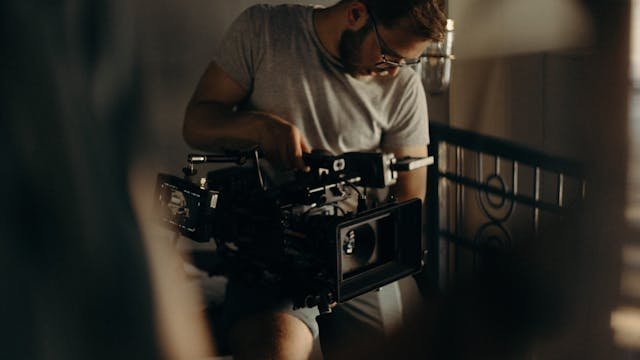
- Casting disabled actors in major roles, not just minor parts.
- Avoiding ableist tropes and outdated stereotypes.
- Creating meaningful, well-developed disabled characters in all genres.
- Hiring more disabled professionals behind the scenes.
By taking these steps, movies and TV shows can accurately reflect the world we live in, where disability is just another part of human diversity.
Audiences Have the Power to Demand Change
Viewers also play a key role in shaping media representation. By supporting films and shows that portray prosthetic users accurately, audiences send a clear message to studios:
- Representation matters.
- Disabled actors deserve the same opportunities as non-disabled actors.
- Authentic storytelling leads to better films and TV shows.
The more people demand realistic and diverse portrayals, the faster the industry will evolve.
A Future Where Prosthetic Users Are Seen as Equals
The goal of media representation is not just to include disabled characters—it’s to show them as equals.
Movies and TV should depict prosthetic users as:
- Heroes, leaders, and role models.
- Everyday individuals with dreams, relationships, and ambitions.
- People who live full, independent lives—just like everyone else.
With continued advocacy, change is possible. The future of entertainment can be more inclusive, accurate, and representative of the diverse world we live in.
Final Thoughts: The Power of Authentic Representation
The way movies and TV shows portray prosthetic users and people with disabilities has a profound impact on society. From changing public attitudes to inspiring young disabled individuals, media has the ability to shape how the world views disability.
At Robobionics, we believe that representation should be empowering, diverse, and truthful. By supporting films and TV shows that celebrate disability rather than exploit it, we move toward a future where prosthetic users are seen, respected, and valued for who they truly are.
The entertainment industry is changing. And as it does, we must ensure that disability representation moves forward, not backward. The world needs real stories, real voices, and real representation—because everyone deserves to be seen.



